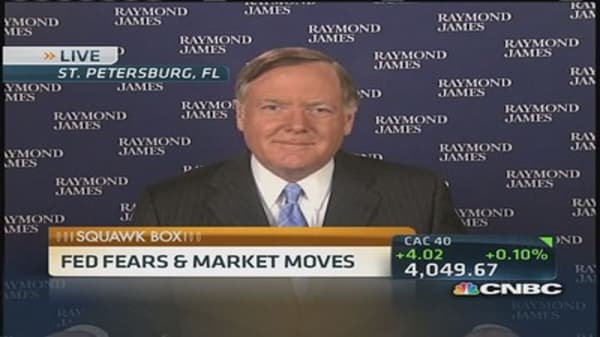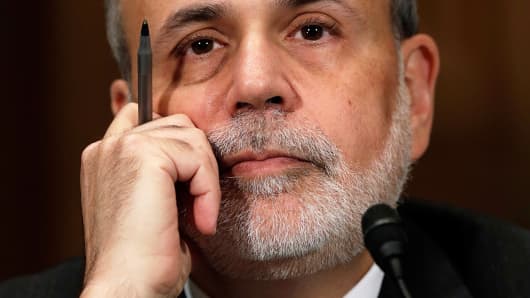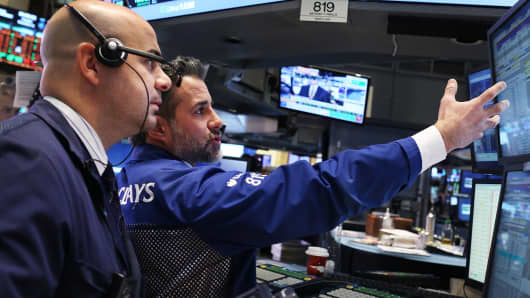Bucking widespread expectations on Wall Street, the Federal Reserve won't begin to scale back its $85-billion-a-month bond buying before the end of the year, Jeffrey Saut, chief investment strategist at Raymond James, told CNBC on Monday.
Many economists believed the tapering could start as soon as September. But last Friday's weaker-than-expected July job growth of 162,000 nonfarm payrolls has raised some questions.
(Read more: Jobs numbers miss the real story)
"I don't think the Fed is going to do anything between now and year end. I think the economy is going to be fast, fast, slow, slow," Saut explained in a "Squawk Box" interview. "And right now, it's slow, slow—so I don't think they are going to taper."
The July unemployment rate did fall to 7.4 percent.






